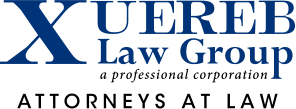Serious financial problems can afflict anyone. Any number of factors can cause financial hardship: loss of a job, personal injury, loss of business, unexpected medical expenses, unexpected legal issues, or any unplanned for bill. Studies show that even something as simple as unforeseen car repairs can set the average American family spiraling into a cycle of late fees and past due balances. Unfortunately, bills often continue to grow while you are past due, with late fees, default interest rates, and other penalties. Past due balances continue to build into an insurmountable mountain. The Federal Bankruptcy laws were enacted to provide consumers with a way to get a fresh start.
Bankruptcy is a legal vehicle that provides relief to individuals and businesses in serious financial trouble. Generally, the bankruptcy process assesses the debtor’s assets and liabilities and provides a structure within which the debtor is allowed to keep most or all of their assets. Most debts are discharged, except those of certain types, like domestic support orders, debt obtained by fraud and some income tax debt. The stigma of bankruptcy has faded and been replaced by the view that it is a fresh start after a time of trouble. Everyday each one of us is subjected to millions of dollars of advertisements encouraging people to incur debt. “No money down”, “no interest”, “no payments” are common sayings in commercials. Whether it is credit card companies or retailers, it’s the same story. There are several options for individuals in need under the bankruptcy code. A Chapter 7, or liquidation, bankruptcy takes roughly 6 months to prepare, file, and administer and wipes your debt clean. A chapter 13, or restructure, bankruptcy will take either 3 or 5 years as you enter into a partial repayment plan with the bankruptcy court. Each provides different options and tools depending on your particular goals, and each has their own requirements. An experienced bankruptcy attorney is necessary in order to determine which solution is right for you.
For businesses that are in need, there are also two major options under the code. A chapter 7 bankruptcy will liquidate your business for the benefit of creditors. The bankruptcy court will supervise the sale of all of the business assets and divide the proceeds amongst your business creditors. This allows you to walk away cleanly, and puts all of your creditors on notice that the business is closed. The other option is a chapter 11, or restructuring, bankruptcy. Chapter 11 bankruptcy can be as short as several months or take many years. It allows a court supervised, and sometimes mandated, modification and negotiation of your debts.
Sometimes bankruptcy is not the answer. Sometimes debt collection defense or negotiations with your creditors is what you need. That’s why we offer no money upfront consultations. If you decide our services are not right for you, there is no charge. This way we can sit down and work together to review your entire financial situation in order to determine the best solution for you.
Xuereb Law Group is a proud member of the National Association of Consumer Bankruptcy Attorneys, the State Bar of Michigan Business Law Section – Debtor/Creditors Right’s Committee, the Federal Bar Association Business Law Section, and the American Bar Association Bankruptcy Committee.
Mandatory disclosures
Xuereb Law Group is a federally designated debt relief agency. We help people find relief under the bankruptcy code. Any help we offer may involve relief under the bankruptcy code.


